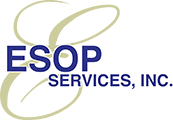Tax-Free Income
Available for Most Private Companies –
S Corporation ESOP Rules
IRS Regulations Issued – December 2004
IRS regulations issued in December 2004, (1.409(p) 1T), clarify several changes made by the Tax Act of 2001 to the rules that apply to S Corporation ESOPs. While the law and the regulations generally impact smaller S Corporations with approximately 20 or fewer employees, IRC 409(p) must be carefully studied prior to any final determination regarding eligibility for tax-free S Corporation income.
The 1997 Tax Act allowed S Corporation stock to be owned by an ESOP. An S Corporation ESOP will not be subject to federal income tax on its share of the net income of the S Corporation or on gains realized upon the disposition of employer stock. Also, an S Corporation ESOP will not be required to offer participants the right to receive distributions in the form of employer stock – these plans may make all distributions in cash. Note, however, that certain special ESOP tax incentives (including the “tax-free” sale provisions of IRC 1042) will not be available to S Corporation ESOPs.
The 2001 Tax Act included an anti-abuse provision IRC 409(p), that imposes an excise tax on an S Corporation if share ownership through the ESOP is or becomes highly concentrated (generally more than 50%) among one or more ESOP participants. The anti-abuse provisions prohibit an ESOP from allocating shares of stock in the corporation to a “disqualified person” during a “non-allocation year”, and also limit other types of compensation.
C Corporations currently sponsoring ESOPs can convert to S Corporation status, and the percentage of stock owned by the S Corporation ESOP is not subject to federal (and most states’) income tax. Thus a 100% ESOP-owned S Corporation no longer pays federal income tax.
Privately held C Corporations can first execute a “tax-free” (IRC 1042) rollover transaction in which eligible selling shareholders pay no capital gains tax on the transaction. At the beginning of the company’s next fiscal year, the C Corporation can convert to S Corporation status, and the S Corporation will receive tax-free income.
The conversion from C Corporation to S Corporation status involves a number of significant accounting issues, and complex ESOP rules, including IRC 409(p), which should be thoroughly reviewed by experienced professional advisors prior to any final decision being made.
